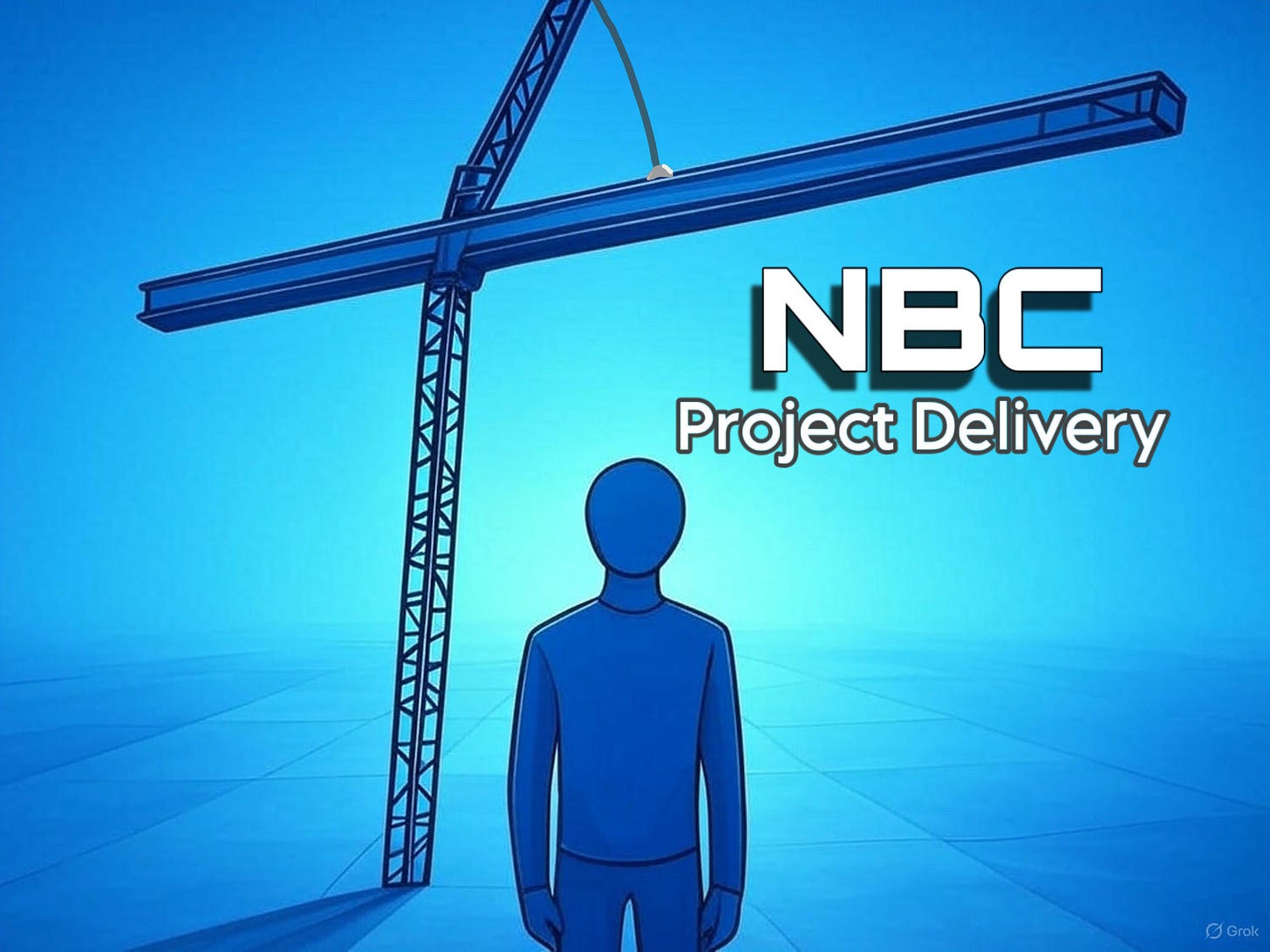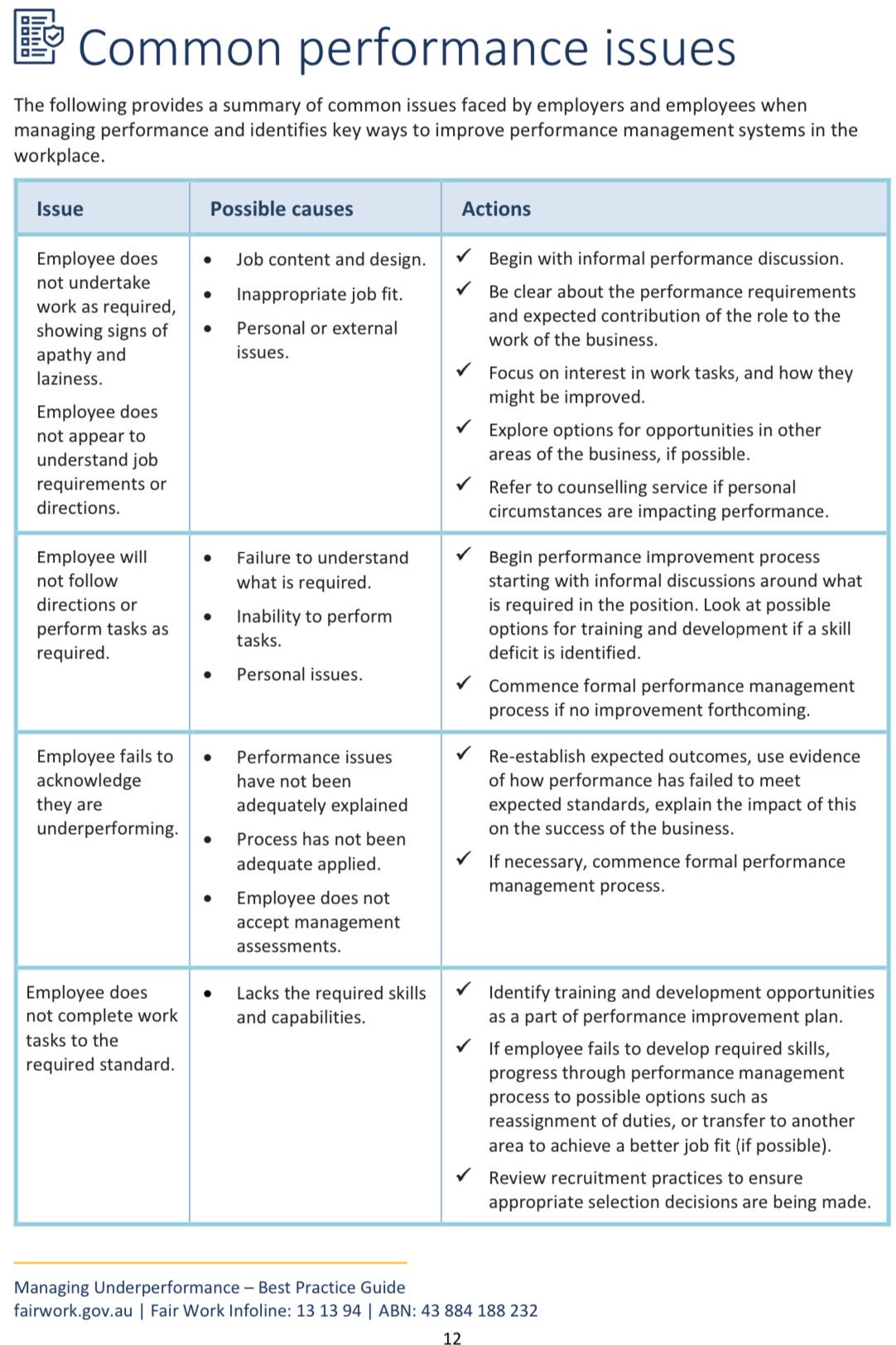What is up with PIPs?
A reflection on a gruelling experience in my first consulting gig.
Background - My first engineering grad job
In my first position straight out of university I was given the chance to join a consultancy in construction project delivery which specialised in time claims and disputes, cost disputes, project management and programming and scheduling. In plain English, they often employed recent project management, architectural and engineering grads in broad recruitment schemes with only a couple of days of official onboarding modules before getting deep into the other end of the pool to do work on massive active infrastructural projects providing advice and analysis to make sure they ran on time and on budget, or reviewing past documents and data for settling legal disputes between parties such as commissioners and contractors to see who was more at fault when projects went belly up.
I personally worked on a dispute in the NSW Regional Rail fleet which, much like how our Liberal government erroneously picked a certain Spanish contractor in Acciona which did us for several hundred million in the Sydney Light Rail delays, another Spanish contractor in CAF did us for another several hundred million dollar lawsuits for a couple of train redesigns mid contract. This is all public knowledge if you choose to look up on the NSW Regional Rail bungle and the NSW Light Rail bungle of a similar nature. Obviously whilst it was our government’s fault for screwing up major amounts of oversight (partly due to previous outsourcing of crucial engineering services to consultants like us who love a buck in the first place) it was fairly obvious from the programmes for delay that they offered in comparison to the original programme for delivery they quoted that in true Mediterranean fashion they overpromised and made us comfortable, and then stubbed a toe or two and held us responsible for a shattered femur (in other words on the project cases I reviewed they had cooked the books for about an extra three months worth of unaccountable activities such as installing “miscellaneous mechanical parts” for over a hundred days when originally they said it would only take one.

Where it all stuffed up for me as a junior was in my first two months when I made a few crucial errors which they never let me hear the end of for three straight gruelling months later:
I enjoyed the company food and culture days too much and the social events (I even made French Niçoise salad to try and impress everyone when except me and maybe one other person ate it);
I took a little too long on online modules when my brain would freeze with not much to do between paid jobs (which I all had to timesheet anyway);
I had taken two days leave before and after Easter to go to Launceston with some friends during my probationary period which HR still approved;
We were rushing to get a set of diagrams out for a presentation to Transport for NSW executives which I had to edit in Microsoft Word Diagram Editor i.e. the one where you make something too big and everything moves at once which takes at least 10 minutes to fix (this drove my OCD and related performance anxieties through the roof and my attention to detail in what I was meant to include in the diagram went through the floor as a result). I ended up submitting deliverables for review which didn’t automatically have everything which my supervisor wanted and he was getting more and more frustrated that they weren’t there when my OCD was still firing alarms about the size and colour of a bloody rectangle. Eventually he walks into the meeting white faced and says to me, “We can’t do any more mate we’ve run out of time.”
I felt pretty rough when this happened and I approached the head of time claims department and explained that I felt like I failed him. He then consoles me and says, “Don’t feel rough mate. We were able to draw the diagrams we didn’t have on the whiteboard and he was just worried about a toddler he had to get to.”; and
I once did pushups in the office which I never did again.
Despite all this obvious 23 year old rookie eccentricity I felt like they should have cut me some slack, but holy shit was it only beginning.
Mr Golum’s Progress Needs to Be Monitored Carefully
I had a mentor at ‘NBC’ Project Delivery consultants who was essentially just a glorified hall monitor for upper execs to gauge your progress as a junior in the open plan office hotdesk where we were all just runts of the litter sharing space with literal 19 year olds who had just happened to finish an internship in some construction company somewhere. My mentor was a country NSW Aussie ocker personality (which I mostly feel like he put on) who previously worked as a builder and had the demeanour of a previous Prime Minister of ours who essentially only won because of this “loveable footy fan suburban dad” look.

He essentially in high school girl fashion would mine the criticisms previous bosses had with me from mild to harsh and would provide no real constructive feedback beyond “this person thinks this about you and you better shape up”. Whatever that meant.
When it came to my three month performance review he asked for a compilation of all the tasks I’d done for everyone I’d worked for and to assess my own work for its strengths and weaknesses which I got some happy feedback from him of “doing a thorough and honest job of”. But I never got a copy of the comments from his end until I stumbled upon his desk (not technically allowed but I felt like I hadn’t had much transparency) and it said “Mr Golum’s progress needs to be monitored carefully”. Whatever in living hell that means as well.
I’d approached HR in concern for what he felt about me and with the request of possibly mediating some understanding meeting between us because I was genuinely quite upset I was misunderstood. This was my first mistake because unlike teachers at high school and university administrators you actively pay money to who are paid to find a mutual solution. HR is the enforcer of the company agenda and to protect the company. And in this case it meant putting me on a PIP, which they warned would be “hard” and “had no guarantee of having a job at the end of even if you said you tried your best in”. Well, as one might think, at least they were honest.

The next following three months invoked fortnightly meetings of what felt like Clockwork Orange style grilling and reeducation sans the classical music, restrictive chair apparatus and presentation slides. Nonetheless, it was a painful draining mindfuck of my hall monitor mentor and the middle aged HR lady constantly dismissing any good work I did which I raised as a marker of improvement and a reiteration of stuff I hadn’t repeated, or problems I declared were a diagnosed symptom of my OCD I actively got therapy for and one mathematics lecture I watched to supplement my training because the online modules I felt didn’t particularly lead me anywhere (she wasn’t the lovely young Jordanian that recruited me but the older meaner one who would non-stop talk about her two year old to abruptly end one on one meetings where I might express my concern about the process - interpret that as you will but it felt like good HR bad HR as an informal strategy).
Discussing this article with my fellow Australian project based industry friend
on Substack, he remarked that it was a rather interesting angle which HR has. Since they often are put in the position of being the enforcers of woke capitalism (in tandem with the propaganda arms of PR and marketing if you want to call it that imaginatively) in the corporate world, they will still use an employee’s mental health and vulnerability against them as a means to fire them and deprive them of their dependence on them rather than find strategies to make them profitable again long term.It was only through enough demonstrable complaining and open emotional breakdown to showcase that I wasn’t coping or happy with what they were doing that they could see that they were going too far. It made me think of scenes where a kid getting beaten up is pulped and bloodied, lying down with a black eye, before another bully in the gang with a mild amount more heart says, “He’s had enough.”
I was eventually given a twenty-four-hour notice that they were going to fire me, and if I took the chance to resign, they’d offer me a support service for outplacement given to retrenched workers. I promptly took it and sent in my letter that evening.
A happy ending of outside support to repeated failures
The next day, I was given some pamphlets for another career coach and outplacement advisor with whom I’m friendly today and who reads this blog. I was among his first clients who recently graduated in highly qualified fields, who were dismissed with performance-related issues because of poor mentorship and resourcing for neurodivergence-related conditions such as OCD or autism spectrum disorder.
He told me in our first conference call that I was an impressive young guy and it was quite shocking I’d been through this but that it should be a warning that “PIPs are like the road to oblivion where only about 5-15% of people are statistically successful in” if I remember correctly.
He offered me a lot of support since, in addition to extra support from my union, my career coach, whom I’ve invested in that helps people with neurodivergence settle with working-related issues and workplace environment communication styles. This is a happy ending - despite the fact I’ve now been through five three-to-six-month probationary churn and burns across three different industries of consulting in project management and dispute forensics, fire safety engineering and fire resistance laboratory testing.
As in the fact, I have a highly broad and unique set of skills, but I have a couple of qualities which I have been actively working on for four years straight, which have constantly led to me getting pulped. I’m hoping soon something good comes out of this and I’m sitting in some comfy government job or multidisciplinary firm somewhere. We’ll have to wait and see for that one like all good things.





Performance improvement plans - rarely are. They're generally manage-you-out-the-door plans. You are not likely to be told how to make them work for you or how to comply "correctly" with them, and the company is likely putting things on paper in order to have some quantifiable metrics they can point at for letting you go in case you contest an immediate discharge. "We gave him a second change with this performance improvement plan, and he didn't do X and Y so we had to let him go anyway."
The key things from your perspective as an employee if you want to keep the job: make sure you understand the PIP thoroughly and especially specific performance issues, goals, timelines, and metrics for success. Whatever the issues you need to address and the goals that you need to hit are
generally the most important bits here. You need to show improvement against those targets early on, demonstrate effort, and make sure to document that - these goals and your progress need to be something quantifiable (not just vibes) and actually tracked. Provide those progress updates regularly to whoever the "stakeholders" are in your PIP - generally your boss and HR - cover the wins, ask for clarification and if any trouble spots come up propose a solution so that you look like you're not just throwing up your hands and seeming helpless.
And, having said all that: assume your employer is probably trying to manage you out anyway. Update your resume, circulate it quietly, if you find a better opportunity don't be afraid to take the strong hint that they're giving you that the grass is greener elsewhere.